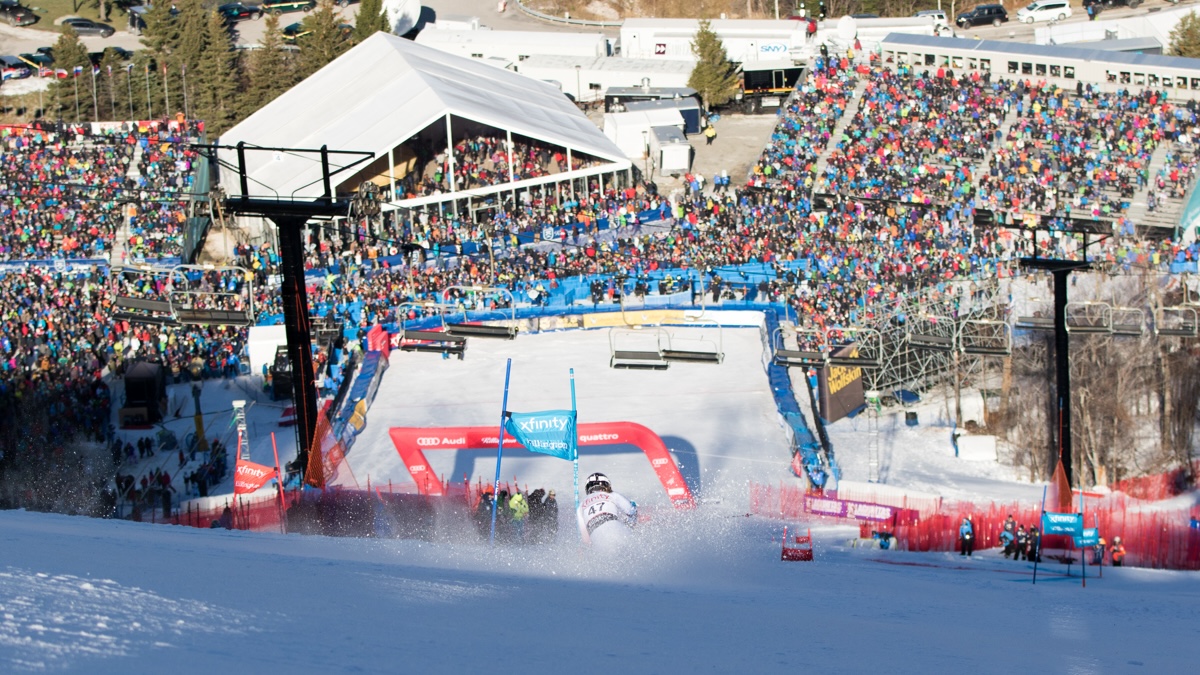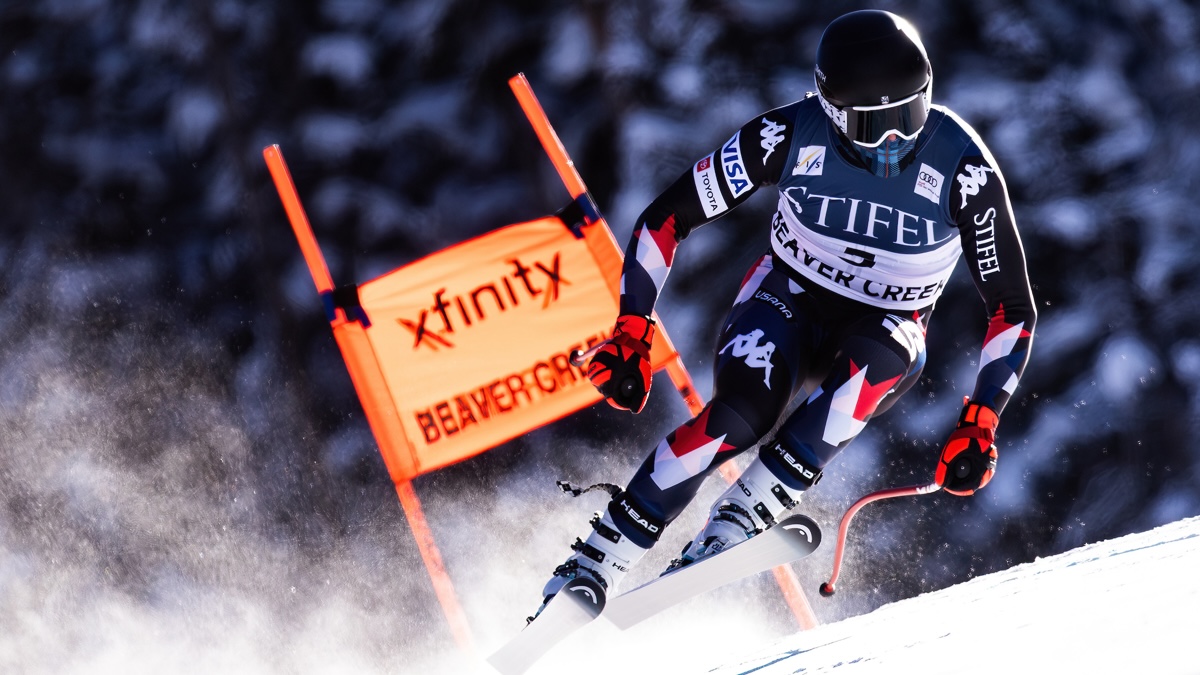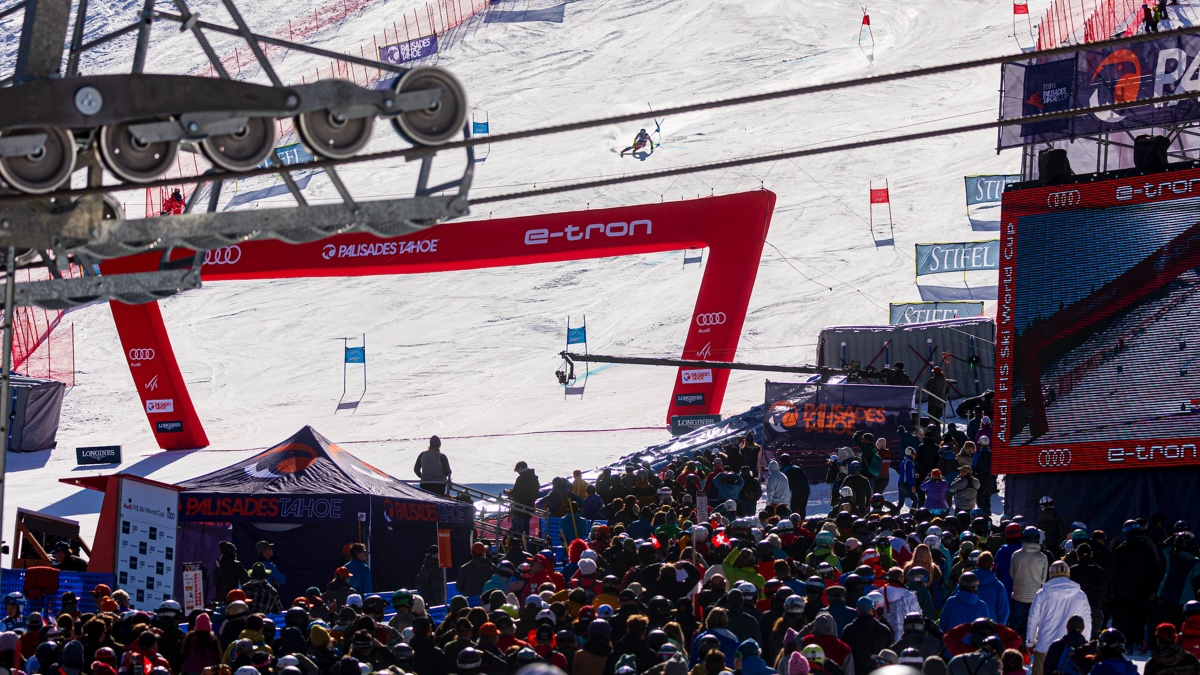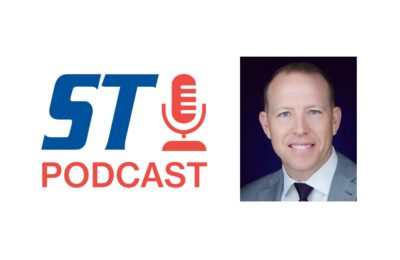
One of the key initiatives for Sophie Goldschmidt when she took over as president and chief executive officer of U.S. Ski & Snowboard nearly three years ago was to bring more major events to the United States. This weekend starts the culmination of that goal, as the United States hosts 12 events sanctioned by the International Ski and Snowboard Federation in the 2024–2025 season.
“This is the most races that we’ve had in a season in the U.S. ever and we’re thrilled about it,” Goldschmidt said. “For various reasons, it really helps to move our sports forward. It’s been a key strategic initiative and we’ve added races every year — we’ve doubled the number of races here from when I started.”
The first FIS-sanctioned event in America in the upcoming season is the Stifel Killington Cup in Killington, Vermont, which takes place November 30 through December 1. The schedule is headlined by the first back-to-back men’s and women’s Alpine World Cup speed races on the Birds of Prey track at Beaver Creek, Colorado — which could be the return of iconic star Lindsey Vonn — and the Alpine World Cup Finals at Sun Valley Resort in Idaho from March 22–27, 2025.
U.S. Ski & Snowboard and the X Games have also entered a strategic partnership that will create The Winter X Games Series including two U.S. Ski & Snowboard-hosted FIS World Cup events, the Toyota U.S. Grand Prix and Visa Big Air presented by Toyota taking place alongside Winter X Games.
“We’re keen to make sure that we’re touching as many parts of the country as possible,” Goldschmidt said. “We have skiers and snowboarders throughout the U.S. and these events are a big investment from us and the local resorts. So to spread that investment across multiple areas makes sense.”
Home Field Advantage
As U.S. Ski & Snowboard prepares to host its largest slate of “home” events this season, there’s both a focus on the present benefits but also for 10 years from now, when Salt Lake City hosts the 2034 Olympic and Paralympic Winter Games.
“We have this amazing opportunity in 2034 — sort of a 10-year North Star we’re looking at — where we feel we can really further turbocharge the interest, participation and fan engagement across all of our sports,” Goldschmidt explained. “And as we get closer to the Olympics, there will be more U.S. resorts that want to host these big events. In addition, we’ll need to support the organizing committee on doing various test events, which will be focused in Utah. So I expect we’ll see more events in this market — we’re based here in Park City as well — that makes it convenient.”
Goldschmidt also points out participation in the organization is growing, U.S. athletes have been performing at a high level on the world stage, and commercially, things are going well for U.S. Ski and Snowboard that “all points to the fact that this is a market that is ripe for further growth and is one that deserves to have more key races coming to it,” she said.

American athlete feedback to all the home events has been positive. The formula is simple: athletes feeling more comfortable at home compete better, which leads to more podiums and more race wins, which benefits the organization.
“I love racing in the States — racing at Killington has been so important for our sport and now the women get to have several stops in North America,” Olympic champion and 99-time World Cup winner Mikaela Shiffrin said this summer when the schedule was released. “I have a lot of great memories skiing in Beaver Creek. It’s an iconic World Cup speed track with a best in the world course crew — the Talon Crew — and the surface is always incredible.”
From a commercial standpoint, the home events are beneficial to U.S. Ski & Snowboard’s corporate partners. The live exposure also gives athletes more of a chance to grow their profiles in the U.S. while the home FIS events will have an impact on the next generation of competitors.
“I can’t count the number of times I’ve heard our best athletes say, ‘I got involved and I dreamt of being the best in the world because I saw my heroes compete in Park City or in Killington,’” said Goldschmidt. “So giving the next generation a chance to experience it up close and personal is different than watching it on the broadcast. It’s super impactful to keep the pipeline development and keep participation levels going.”
Economic Impact Boosted
For the resorts that host FIS events, it’s a huge economic generator. The crowds that flock to the host cities will come from all over, both domestically and internationally. Some take two days, while others last a week.
“The economic impact is really important and it’s how they can justify investing in these events — both the resort and the broader community,” Goldschmidt said. “These races are broadcast in dozens of different countries around the world. We also take the footage and use it on our social channels. So it’s the outbound exposure they get that will build their profile and help to attract more visitors down the road, as well as what actually happens around the competitive weekends themselves.”

Goldschmidt says FIS wants to go to markets where the snow is going to be great and where the resorts can put on a show to further raise the profile of the sport in the United States.
“To get the opportunity to host the Stifel Finals, you have to prove that you can successfully host regular World Cup events, because the scale of World Cup Finals having men and women and four different disciplines means it’s eight races,” she said. “We’ve proven that we can put these races on really successfully and we’ve now had a good track record of doing that.”
Three years in, Goldschmidt is proud of what the organization has accomplished.
“It’s been a huge team effort and I have an amazing team and staff that support these athletes and sports in so many different ways,” she said. “I think we’ve been able to implement some really important changes to provide more opportunities, both at the grassroots level and at the elite level. To me, it’s very much a virtuous circle. When we have more engagement, more participation, that means we get more talent in the pipeline, which leads to more success at the elite level, which drives commercial interest and media support. That means we get more participation.”











 Copyright © 2025 by Northstar Travel Media LLC. All Rights Reserved. 301 Route 17 N, Suite 1150, Rutherford, NJ 07070 USA | Telephone: (201) 902-2000
Copyright © 2025 by Northstar Travel Media LLC. All Rights Reserved. 301 Route 17 N, Suite 1150, Rutherford, NJ 07070 USA | Telephone: (201) 902-2000